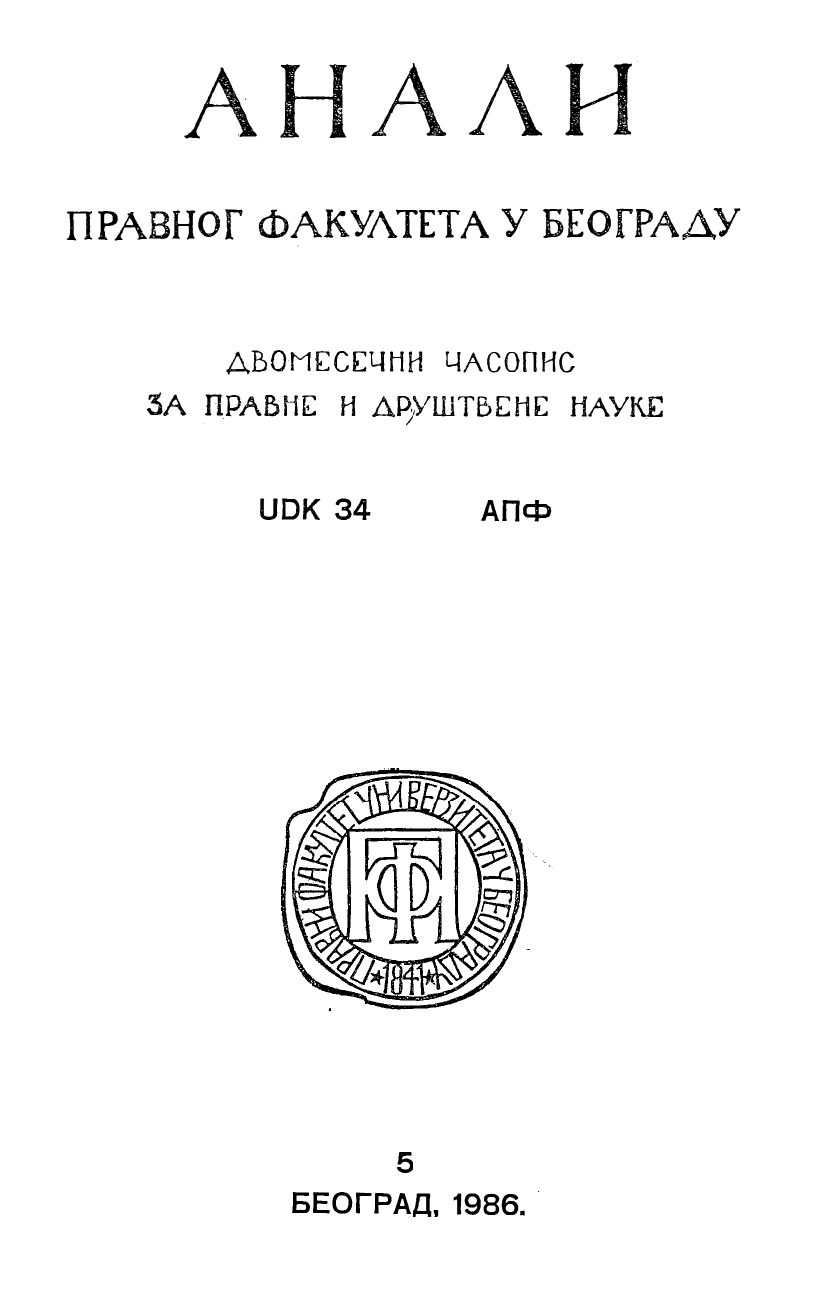САСУШИВАЊЕ ПРАВА СВОЈИНЕ У ФРАНЦУСКОЈ (1804—1985)
DESSICATION OF THE LAW OF PROPERTУ IN FRANCE (1804—1985)
Author(s): Eric AgostiniSubject(s): Law, Constitution, Jurisprudence, Civil Law
Published by: Правни факултет Универзитета у Београду
Summary/Abstract: The law-maker in 1804 has introduced into the Civil Code, by an odd resurrection of the past, that model of property which has been formed in course of a thous — and years by the Roman law. However, contrary to solemn proclamations which even today make the French positive law, subsequent course of event brought about the limiting of the right of property. At the beginning these restrictions were insignificant, but later on they were replaced by ever stronger and more numerous ones. They were either of legislative or judicial characters and related primarily to the execution of the right of property, and were followed by putting a question mark as to its very existence. Judicial practice has begun to introduce restriction in realizing the right of property already at the outset of the nineteenth century, meaning at the time of the rule, in the sphere of legal theory, of the school of exegesis. Somewhat later on, the very law has imposed to the owners specific duties in respect to the realisation of the right. As far as the existence of property is concerned, it came out of the Revolution stronger. The only restriction which could be applied against it was the expropriation due to public needs. Only after the Second World War, the nationalisation became usual practice as a restriction which is aimed against the very existence of the right of property. As an exception, the nationalisation has been applied as a kind of sanction (as was the case with Renault factories of automobiles, because of their cooperation with Germans). In most cases it rested on socio-economic reasons which were already provided for in the preamble of the 1946 Constitution, and whose constitutional validity has been confirmed also in the preamble of the Constitution of 1958. According to the latter text, the Assembly may enact a decision by which any enterprise may be nationalized which has the characteristics of public service or factual monopoly position, or which is in the process of assuming such characteristics.
Journal: Анали Правног факултета у Београду
- Issue Year: 34/1986
- Issue No: 5
- Page Range: 470-479
- Page Count: 10
- Language: Serbian

